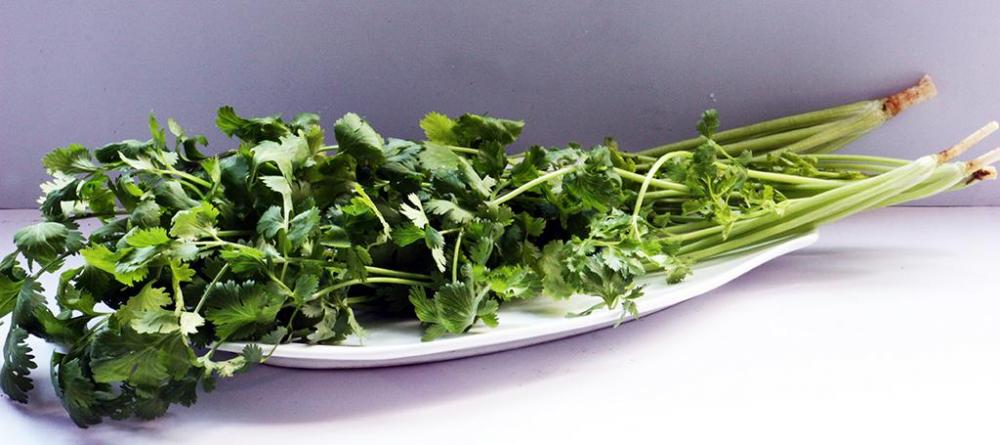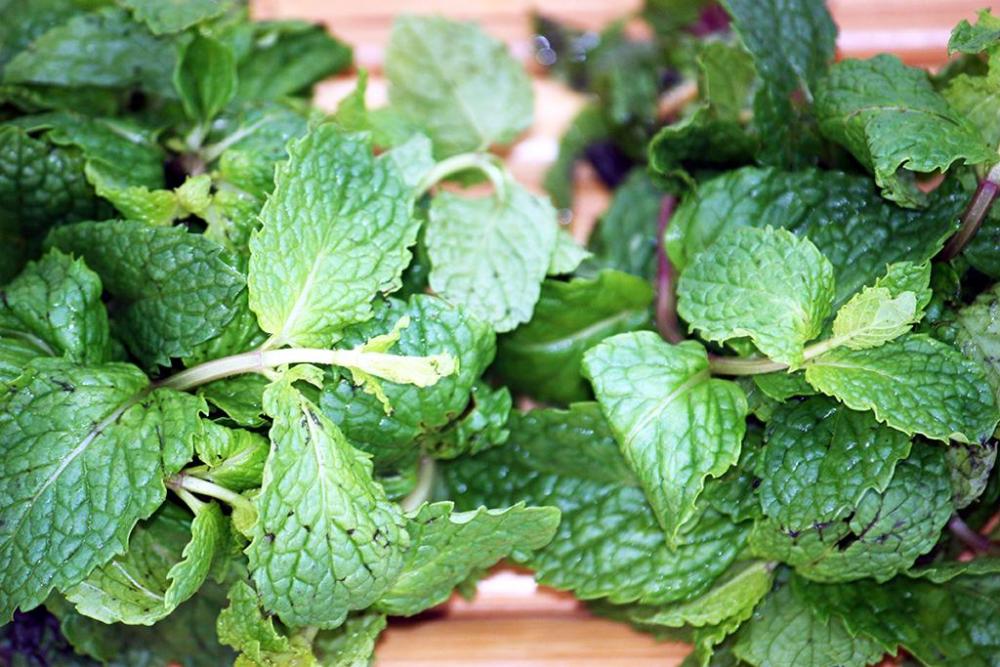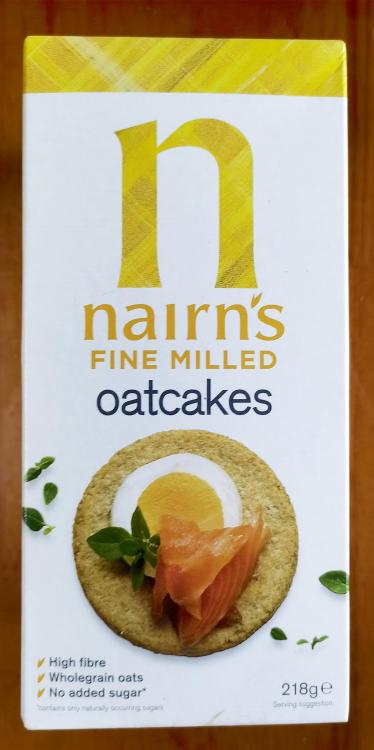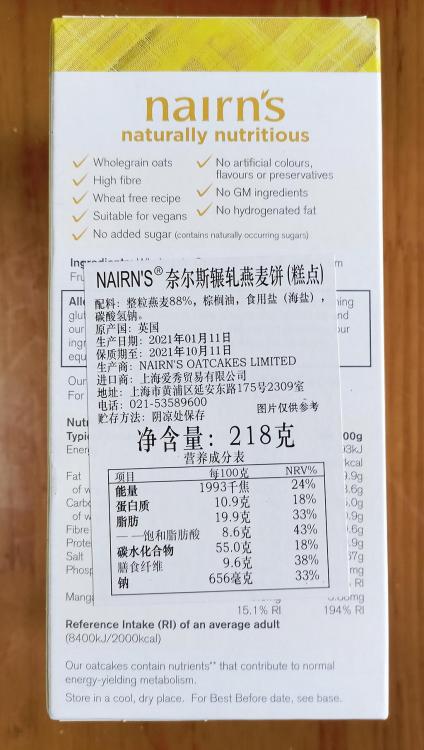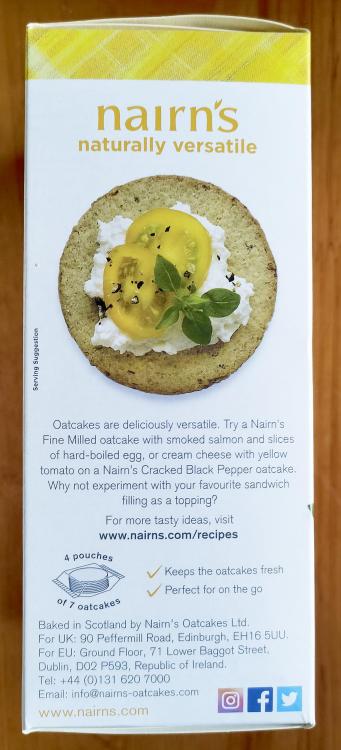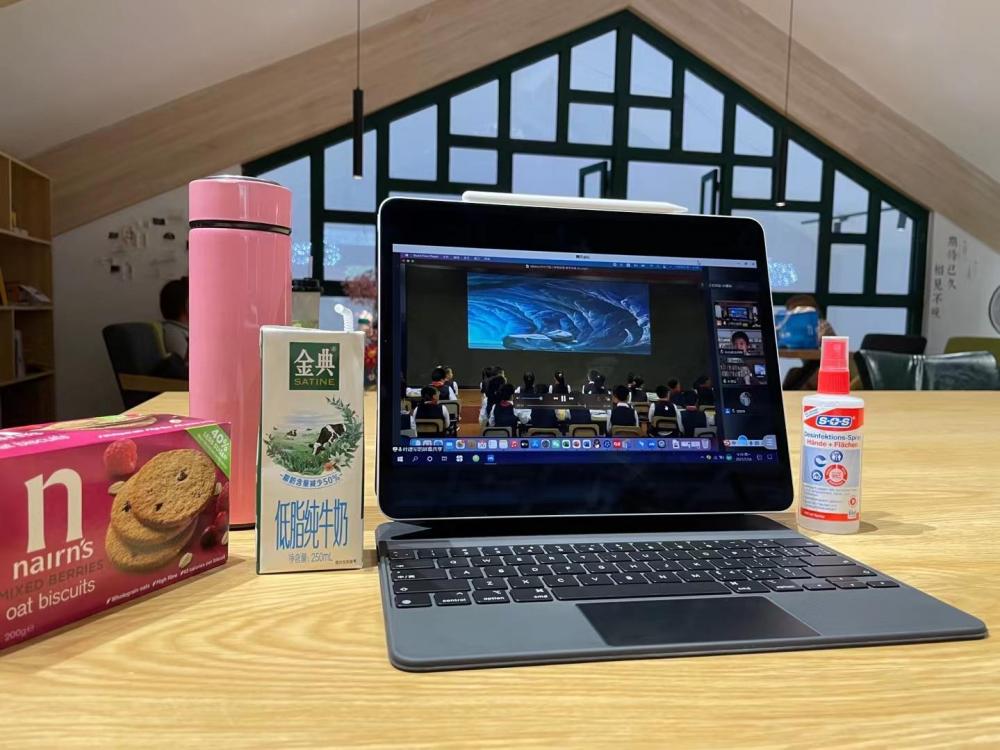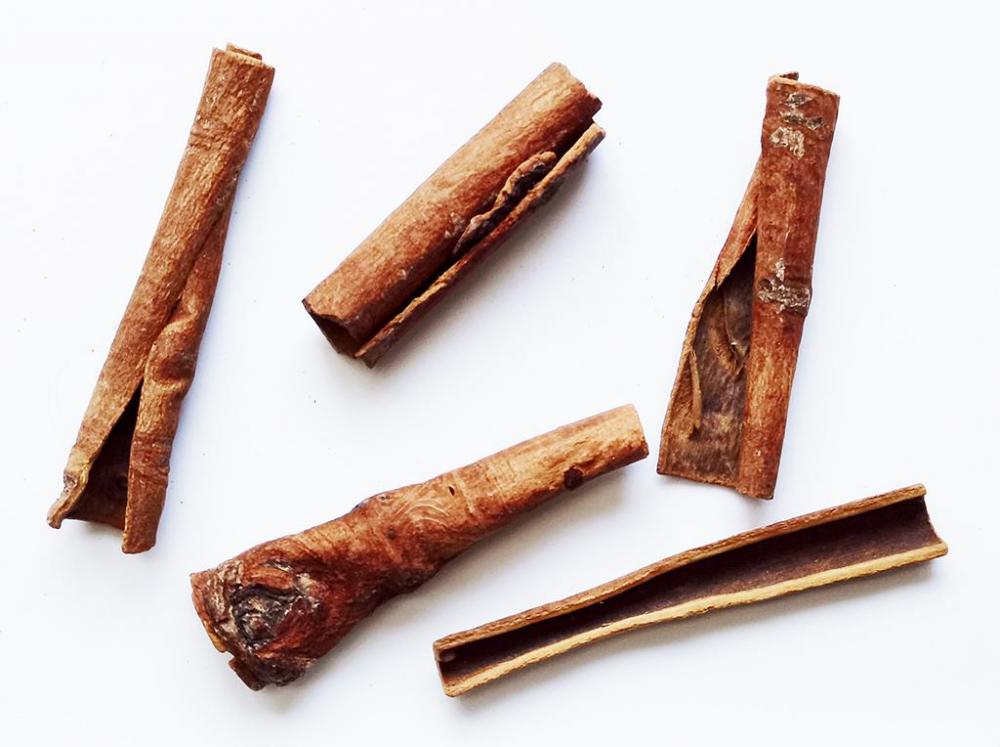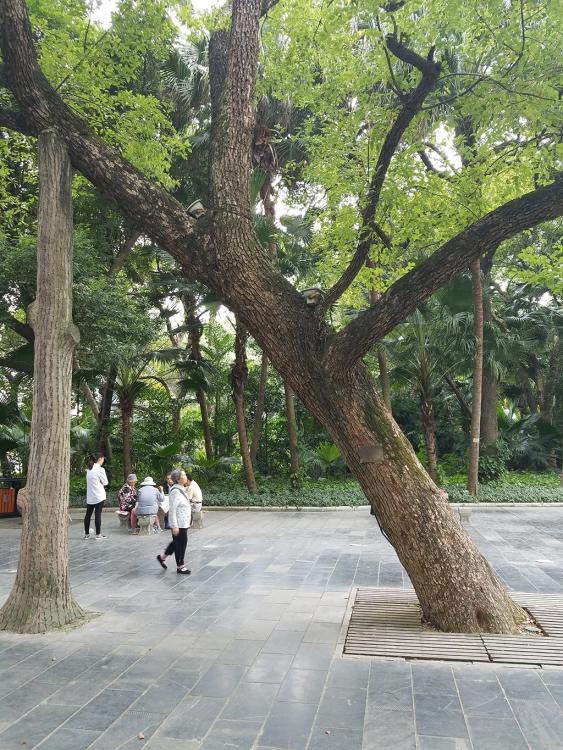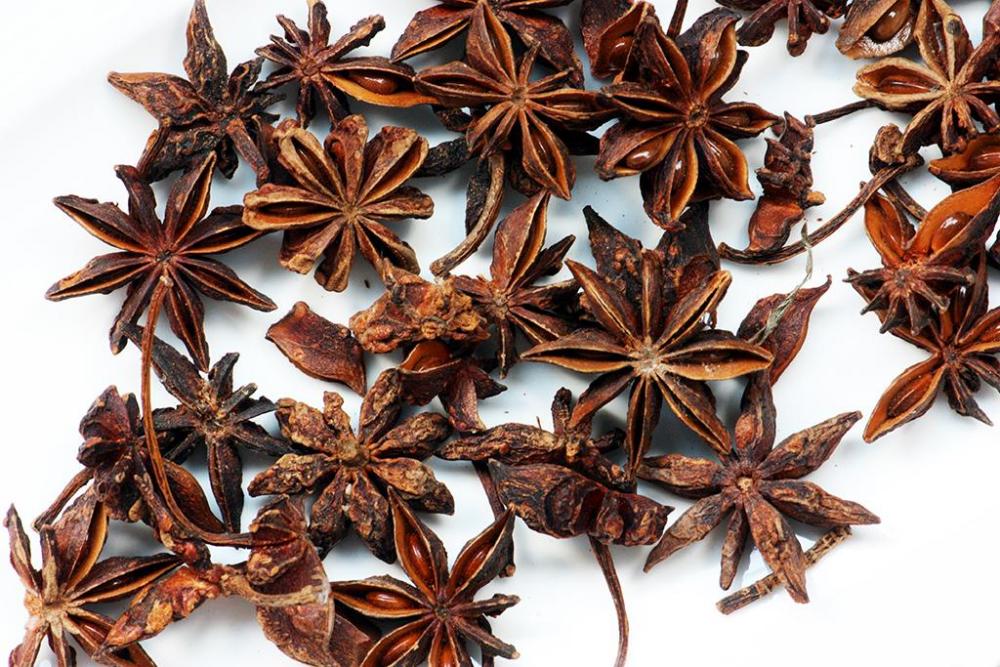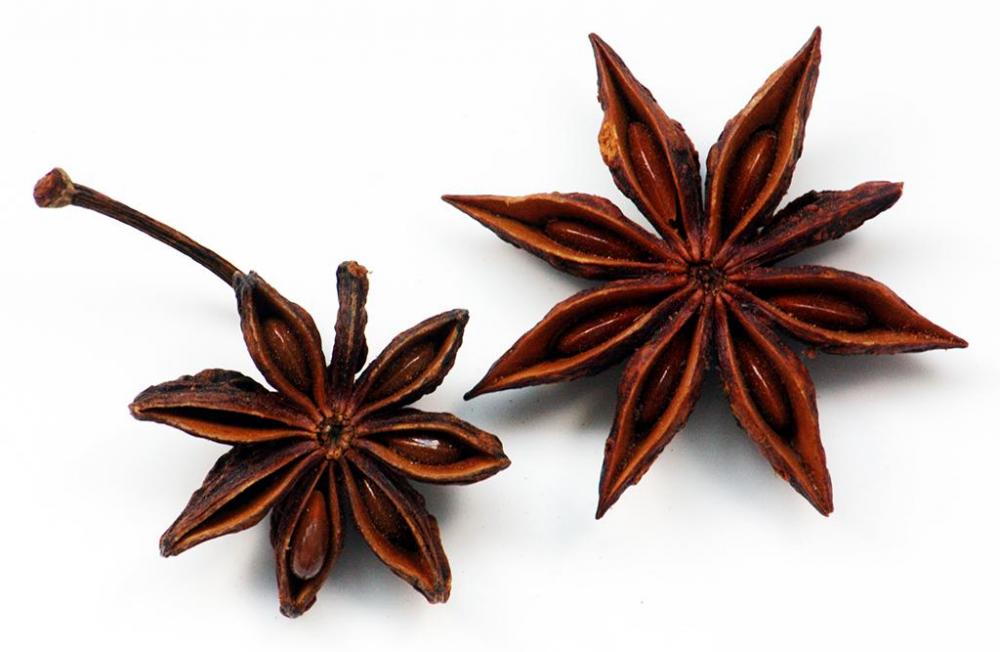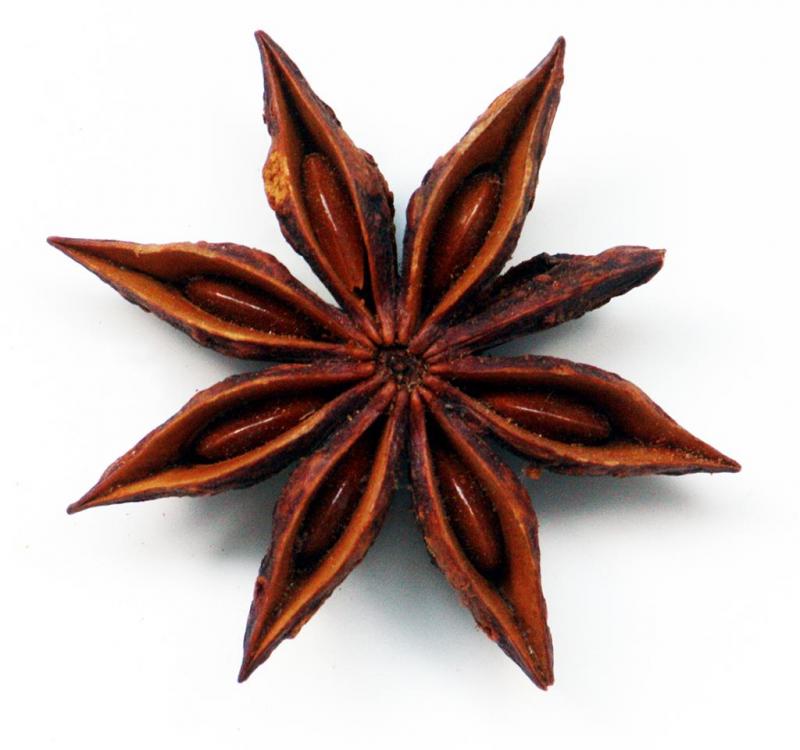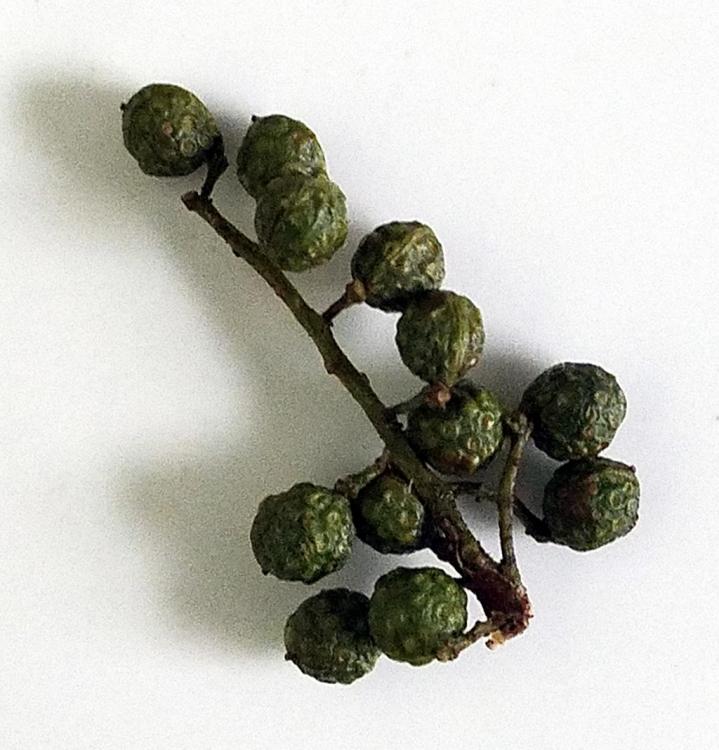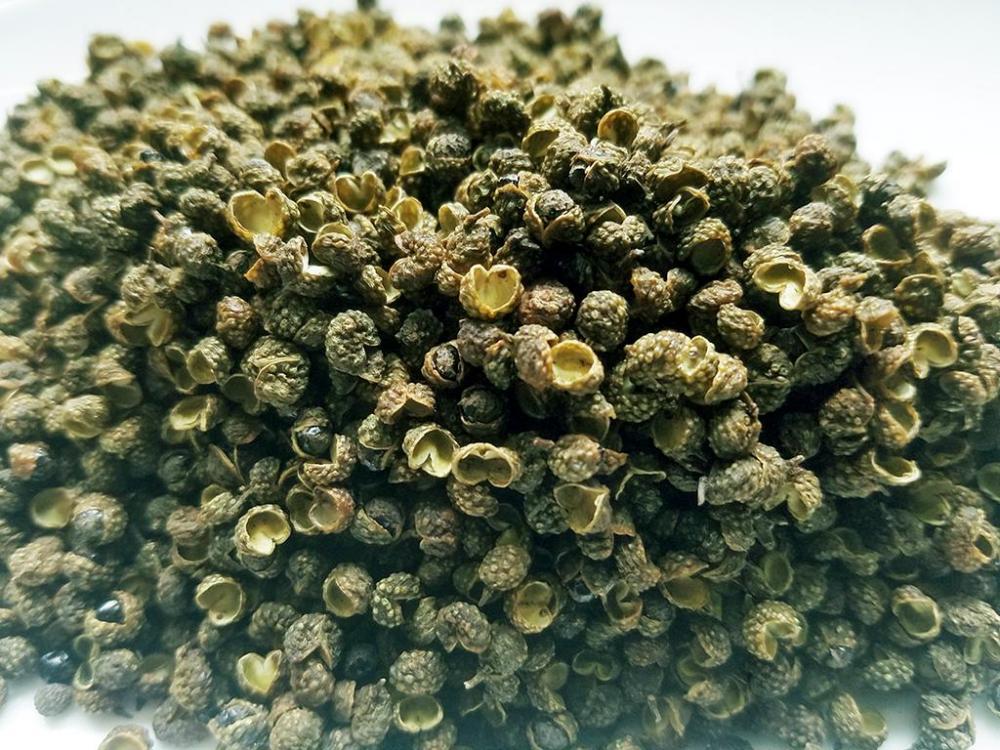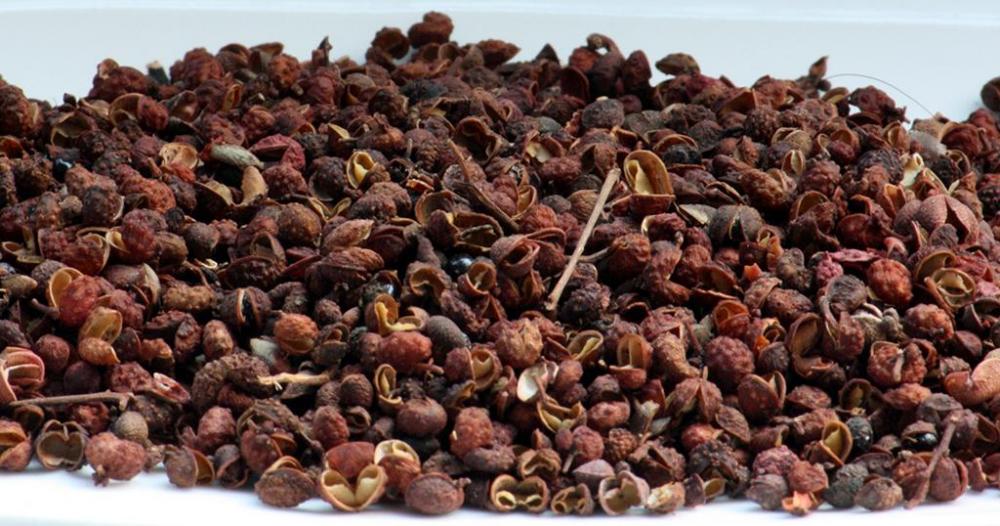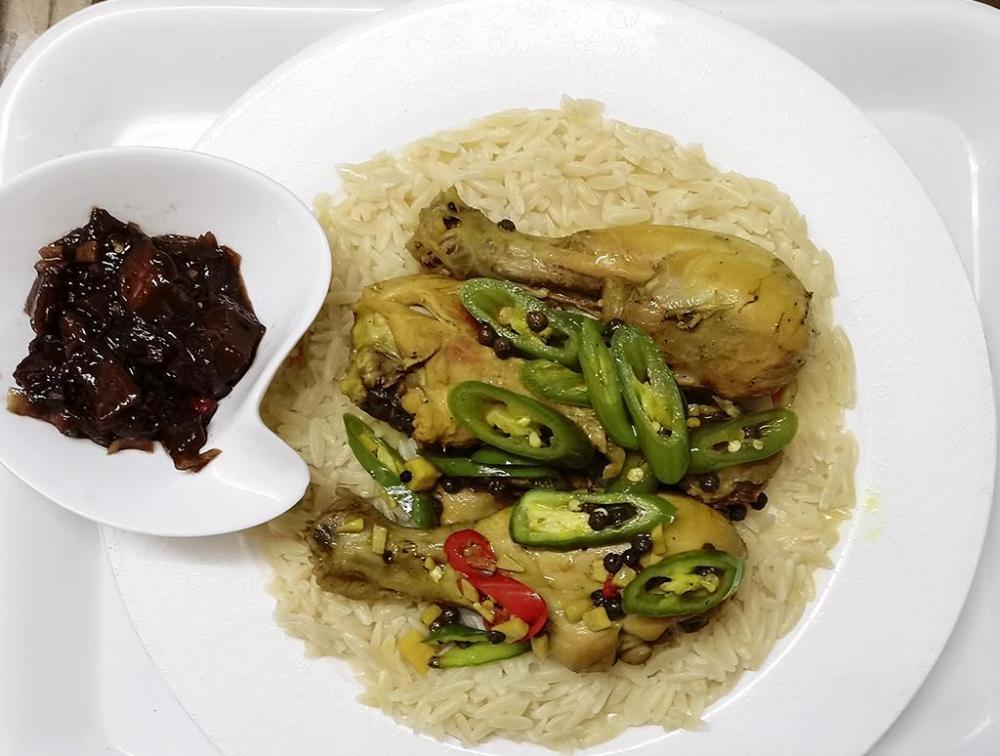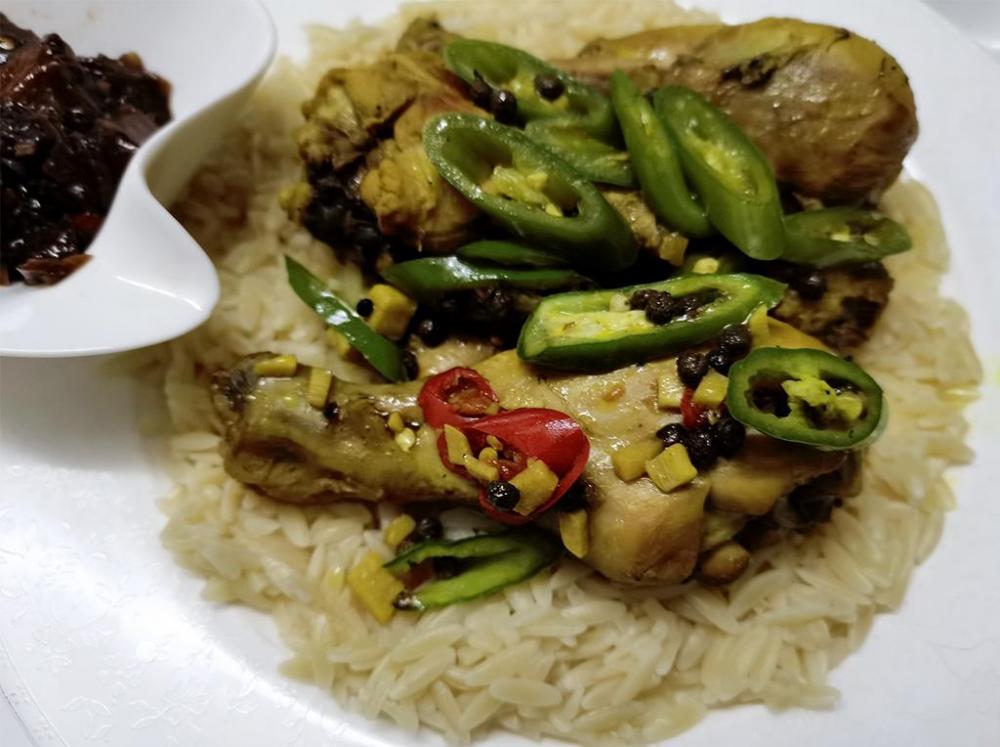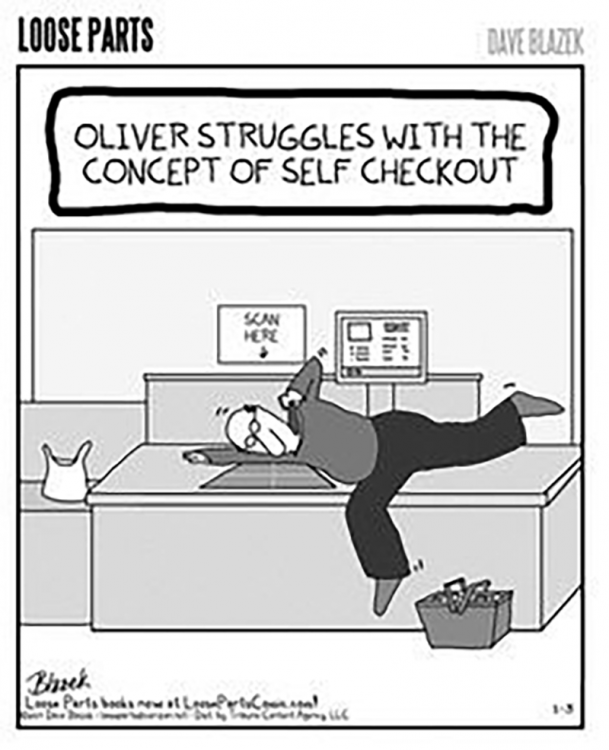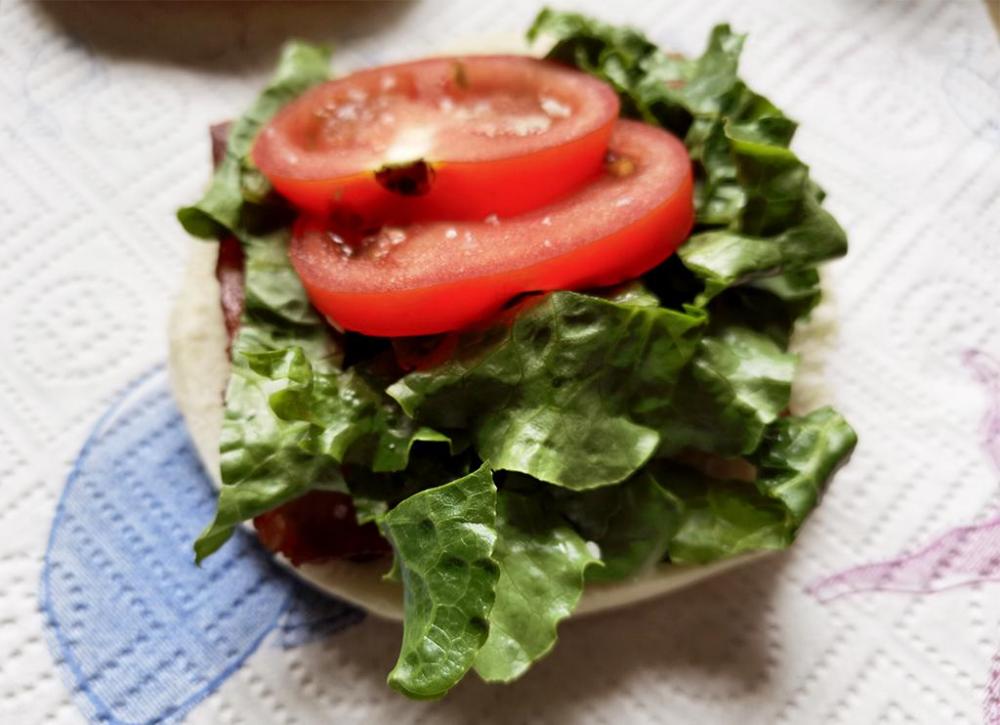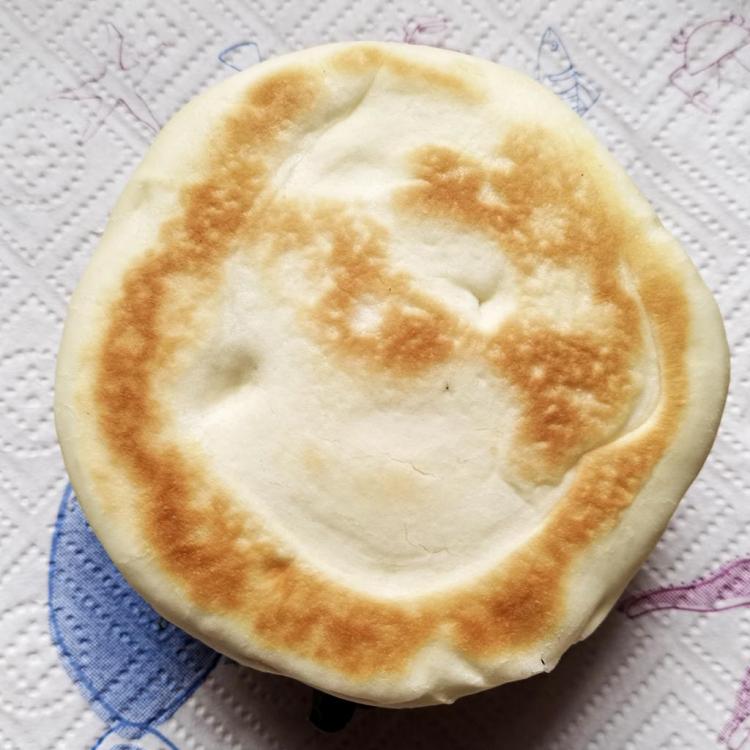-
Posts
16,813 -
Joined
-
Last visited
Content Type
Profiles
Forums
Store
Help Articles
Everything posted by liuzhou
-
1. Thought so. 2. Maybe, but it's American-Chinese 3. As I already said, Lion's Head Meatballs are definitely a thing in China. Just not that recipe. 4. Good. 5. OK 6. Haha! Here in China we eat rice every day! But not with meat balls. We don't eat them with noodles either. 7. The instructions do say "To cook on the hob. Add the noodles to boiling water for 1 to 2 min, drain and serve immediately." My stress. Also, those are Japanese noodles.
-
I do have a good friend in Yunnan. I'll ask how common it is. I haven't been there since Mao was a baby.
-
Well, I'm close to the Vietnam border and like I said can only find it sporadically from one vendor. I do grow it myself. In fact, Guangxi is the major trade route btween the two countries - just not for food. It is source of great frustration to me how little vegetation or any other food is imported from Vietnam. I mean I can almost see the damn place from my window! (Slight exaggeration). There isn't a single Vietnam restaurant in town that I'm aware of. I want to go to Vietnam! But, of course, I can't right now.
-
I am not objecting to American-Chinese cuisine and I'm sure the result would be tasty, but Susan did say the recipe was "real Chinese". It isn't, if you define 'real Chinese' as how it is made in China, which I think was her meaning.. For a more "real", traditional recipe see Fuchsia Dunlop's Land of Fish And RIce (eG-friendly Amazon.com link).
-
Don't I always? 😂 If it is that recipe, it isn't very authentic. (I've never been impressed by that website). As they say but oyster sauce is Cantonese and not at all traditional in Lion's Head Meatballs. Neither is 5-spice powder. This is a heavily American-Chinese orientated recipe. Pork shoulder is all wrong - they are made from pork belly. They are usually served in a broth. I've never seen them with noodles. I'd like to know what noodles she used that turned to wallpaper paste, and how she cooked them, but I'm afraid to ask; it took a lot of effort to find out what the recipe might be! But noodles turning to paste just means they were overcooked.
-
4. Fresh Herbs I thought I’d get this one out of the way. It won’t take long. In most of China, the only fresh herb available in supermarkets or other food stores is coriander leaf / cilantro. Known in Chinese as 香菜 (xiāng cài, literally ‘fragrant vegetable’). It is used in thousands of dishes from stir-fries to hot pots to fried rice etc. I always have it in the kitchen. Coriander / Cilantro When I lived in Hunan in the 1990s, there was a woman on the street near my home with a large pan of boiling oil over an old, charcoal-fueled, oil can stove who dropped sprigs of the herb into the oil until it deep-fried to crisp perfection - in seconds. She then sprinkled it with salt and chilli flakes and served it wrapped in paper. It was heavenly. I never passed her without buying some. And it cost almost nothing. Incidentally, Chinese cuisine extremely rarely uses coriander seed. I’ve never once seen it in any store or market, other than a market for farmers, selling the seeds for planting. It is not recommended to eat those seeds as they have been artificially treated with seed germination enhancers. Even online, all the seeds for human consumption are imported. The ones I use (in non-Chinese dishes) are from India. One vendor in my market of choice here does occasionally have mint (薄荷 - bò he), although it is rarely used in dishes – more often in ‘teas’ or ‘herbal medicines’. Mint Parsley is even more rarely seen or used. And that is about it. Some plants like garlic chives, sometimes considered herbs in the west are just considered to be vegetables here.
-
This could be fun. A few days ago, a friend in China sent me some pictures of her daughter. Included for some reason was this. What grabbed my attention was the Nairn's oat biscuits on the left. I was in shock. Scottish oat cakes in China. I know the brand - they are Edinburgh-based. I leapt onto the main online shopping portal I use and sure enough I found them - out-of-stock! I established that the company do have an office in Shanghai. This morning, I was in the local over-priced foreign food store in town looking for some Dijon mustard and on the way out passed the biscuit / cookie aisle. Not something I usually pay any attention to. And there in front of me were these. They also had the same company's 'oats and syrup biscuits', 'coconut and chia oat biscuits' and 'dark chocolate chip oat biscuits'. I ignored all that nonsense and went straight for a packet of the plain ones. I know it makes sense. They aren't the best Scottish oatcakes in the world, but better than none. Now I am just waiting for the goats cheese I have ordered to arrive. P.S. The damn store was out-of-stock on the Dijon mustard. P.P.S. 'Biscuits' here refers, of course, to the British meaning.
-
Actually, the prop is a tree! It has been lopped and replanted where its support is needed. Nearby there is an ancient camphor wood tree (also a memberof the Cinnamomum family, Cinnamomum camphora) which needs six of these tree props.
-
Vietnamese cinnamon is closer to cassia than to true cinnamon. Sri Lankan cinnamon is probably the best for baking, if you can find it.
-
No. The flavour is very different. I just meant they are used in the same manner. Chuck one or two into a braise or stew. I have no experience with growing cinnamon or cassia, but I'd guess you could use the leaves, yes.
-
3. 桂皮 (guì pí) - Cassia Bark - Cinnamomum cassia Another local is cassia bark 肉桂 (ròu guì) or 桂皮 (guì pí), Cinnamomum cassia, which is native to Guangxi, neighbouring Yunnan province and equally neighbouring northern Vietnam. A few days ago I accidentally found myself watching a YouTube video in which a one-time winner of Masterchef, Australia was opining about various ingredients used in a Chinese dish. I was spitting at my computer screen as he came out with utter, ignorant drivel. Among the tirade of nonsense emanating from his mouth was the preposterous claim that cinnamon is the inner bark of the tree while cassia is the outer bark. Pillock! Cinnamomum cassia tree in my local park. No, they don't all lean like that! Cinnamon and cassia are related but different trees. (True cinnamon is from Cinnamomum verum or Cinnamomum zeylanicum, both native to the Indian subcontinent.) Both edible spices are from the dried inner bark of their respective trees. I wouldn’t trust that ‘master’ to boil me an egg! It is true, however to say, that most cinnamon sold in North America is actually cassia. That troubles me. They do taste a lot different, with true cinnamon being considerably less pungent and more delicate. Cassia can be bitter if too much is used. Go sparingly. Cassia is generally better suited to savoury dishes, whereas cinnamon more to sweet dishes. Cassia is yet another ingredient in five-spice powder and the quills or pieces there of are also added to hot pots, braises and stewed dishes. The leaves, flower buds and seeds are all used, too. The leaves are used like bay leaves. Please note that what is often sold as 'cassia seed', isn't cassia at all, but a completely different plant.
-
It would help if you said what the sauce was. Chinese cooking is not all anything. Like most cuisines it has both strongly flavoured and mild dishes. Saltiness should be balanced. Over or under-seasoning would be equally bad.
-
OK. Thanks. But I'm none the wiser. Who or where or what is Norman and what is his relationship with tuna? My cousin is called Norman, so I asked him. He denies everything!
-
I wouldn't say it's 'wrong'; just outdated.
-
I usually toast them in the wok to release the oils before introducing to the dish I'm making, yes*. Sometimes I add them near the end as you describe. Sometimes much earlier. It depends what I'm cooking. I seldom use the oil. Sometimes in dips; sometimes in hotpots. I don't detect any metallic notes, though. That suggests to me that they aren't very fresh, but I'm not sure. They should always be numbing in addition to any other qualities. Lack of numbing = stale. * Again, this applies to many dried spices.
-
Doesn't surprise me. They are only recently available here. According to Fuchsia Dunlop, they were only approved for sale and consumption in 1998, two years after I arrived. But I didn't encounter them until about 3 or 4 years ago.
-
I have no idea what Norman Tuna means, but I'd eat that. Beautiful.
-
2. Star Anise If you have used star anise, Illicium verum in your cooking, there is a strong chance that they came from Guangxi where I live. The plant is native to here and Guangxi produces 80% of the world crop. Known in Chinese as 八角 (bā jiǎo), literally ‘8 horns’ although they can, in fact, have between 6 and 10 ‘horns’, it is used extensively in Chinese cooking, but also in medicines, perfumery, soaps, toothpastes, mouthwashes, skin creams etc. They are the pericarp of the flowers of a small tree in the magnolia family. I had one growing outside my second home in the countryside. The flowers are harvested before they ripen and dried to these hard brown stars. They are not related to aniseed, but both contain the chemical, anethole which supplies the distinctive flavour, also found in fennel. Again they are used as a component of five-spice powder, but also used whole for their umami in hot pots, soups, braised and stewed dishes etc. They are not actually eaten and may be removed before serving. They can, of course, also be used in many western dishes. I use them in Italian style ragu and even Scottish mince and tatties! Although they hold their flavour much longer than the Sichuan peppercorns above, I'd still recommend buying them as fresh as you can and in small quantities. In fact, I'd say that applies to all spices.
-
Your wish is my command! Sometimes! A lot of what I say here, I will have already said in scattered topics across the forums, but I guess it's useful to bring it all into one place. First, I want to say that China uses literally thousands of herbs. But not in their food. Most herbs are used medicinally in Traditional Chinese Medicine (TCM), often in their dried form. Some of the more common are sold in supermarkets, but more often in pharmacies or small specialist stores. I also often see people on the streets with baskets of unidentified greenery for sale - but not for dinner. The same applies to spices, although more spices are used in a culinary setting than are herbs. I’ll start with Sichuan peppercorns as these are what prompted @Tropicalsenior to suggest the topic. 1. Sichuan Peppercorns Sichuan peppercorns are neither pepper nor, thank the heavens, c@rn! Nor are they necessarily from Sichuan. They are actually the seed husks of one of a number of small trees in the genus Zanthoxylum and are related to the citrus family. The ‘Sichuan’ name in English comes from their copious use in Sichuan cuisine, but not necessarily where they are grown. Known in Chinese as 花椒 (huājiāo), literally ‘flower pepper’’, they are also known as ‘prickly ash’ and, less often, as ‘rattan pepper’. The most common variety used in China is 红花椒 (hóng huā jiāo) or red Sichuan peppercorn, but often these are from provinces other than Sichuan, especially Gansu, Sichuan’s northern neighbour. They are sold all over China and, ground, are a key ingredient in “five-spice powder” mixes. They are essential in many Sichuan dishes where they contribute their numbing effect to Sichuan’s 麻辣 (má là), so-called ‘hot and numbing’ flavour. Actually the Chinese is ‘numbing and hot’. I’ve no idea why the order is reversed in translation, but it happens a lot – ‘hot and sour’ is actually ‘sour and hot’ in Chinese! The peppercorns are essential in dishes such as 麻婆豆腐 (má pó dòu fǔ) mapo tofu, 宫保鸡丁 (gōng bǎo jī dīng) Kung-po chicken, etc. They are also used in other Chinese regional cuisines, such as Hunan and Guizhou cuisines. Red Sichuan peppercorns can come from a number of Zanthoxylum varieties including Zanthoxylum simulans, Zanthoxylum bungeanum, Zanthoxylum schinifolium, etc. Red Sichuan Peppercorns Another, less common, variety is 青花椒 (qīng huā jiāo) green Sichuan peppercorn, Zanthoxylum armatum. These are also known as 藤椒 (téng jiāo). This grows all over Asia, from Pakistan to Japan and down to the countries of SE Asia. This variety is significantly more floral in taste and, at its freshest, smells strongly of lime peel. These are often used with fish, rabbit, frog etc. Unlike red peppercorns (usually), the green variety are often used in their un-dried state, but not often outside Sichuan. Green Sichuan Peppercorns Fresh Green Sichuan Peppercorns I strongly recommend NOT buying Sichuan peppercorns in supermarkets outside China. They lose their scent, flavour and numbing quality very rapidly. There are much better examples available on sale online. I have heard good things about The Mala Market in the USA, for example. I buy mine in small 30 gram / 1oz bags from a high turnover vendor. And that might last me a week. It’s better for me to restock regularly than to use stale peppercorns. Both red and green peppercorns are used in the preparation of flavouring oils, often labelled in English as 'Prickly Ash Oil'. 花椒油 (huā jiāo yóu) or 藤椒油 (téng jiāo yóu). The tree's leaves are also used in some dishes in Sichuan, but I've never seen them out of the provinces where they grow. A note on my use of ‘Sichuan’ rather than ‘Szechuan’. If you ever find yourself in Sichuan, don’t refer to the place as ‘Szechuan’. No one will have any idea what you mean! ‘Szechuan’ is the almost prehistoric transliteration of 四川, using the long discredited Wade-Giles romanization system. Thomas Wade was a British diplomat who spoke fluent Mandarin and Cantonese. After retiring as a diplomat, he was elected to the post of professor of Chinese at Cambridge University, becoming the first to hold that post. He had, however, no training in theoretical linguistics. Herbert Giles was his replacement. He (also a diplomat rather than an academic) completed a romanization system begun by Wade. This became popular in the late 19th century, mainly, I suggest, because there was no other! Unfortunately, both seem to have been a little hard of hearing. I wish I had a dollar for every time I’ve been asked why the Chinese changed the name of their capital from Peking to Beijing. In fact, the name didn’t change at all. It had always been pronounced with /b/ rather than /p/ and /ʤ/ rather than /k/. The only thing which changed was the writing system. In 1958, China adopted Pinyin as the standard romanization, not to help dumb foreigners like me, but to help lower China’s historically high illiteracy rate. It worked very well indeed, Today, it is used in primary schools and in some shop or road signs etc., although street signs seldom, if ever, include the necessary tone markers without which it isn't very helpful. A local shopping mall. The correct pinyin (with tone markers) is 'dōng dū bǎi huò'. But pinyin's main use today is as the most popular input system for writing Chinese characters on computers and cell-phones. I use it in this way every day, as do most people. It is simpler and more accurate than older romanizations. I learned it in one afternoon. I doubt anyone could have done that with Wade-Giles. Pinyin has been recognised for over 30 years as the official romanization by the International Standards Organization (ISO), the United Nations and, believe it or not, The United States of America, along with many others. Despite this recognition, old romanizations linger on, especially in America. Very few people in China know any other than pinyin. 四川 is 'sì chuān' in pinyin.
-
Braised chicken legs with garlic, ginger, turmeric, green Sichuan peppercorns, red and green chillies, Shaoxing wine and soy sauce. Served with orzo, a side of stirfried asparagus with garlic and my favourite mango relish. That green chilli was really hot - that type of chilli (I know the Chinese name, but not what it might equate to elsewhere) is usually relatively mild, but one in 50 will blow your toupée off. I got the syrup* killer! *London rhyming slang.
-
BLT (the bacon is being a bit shy and hiding), served on a 白吉饼 (bái jí bǐng) a type of flatbread from Xi'an. Now everything is hiding except the bread.






